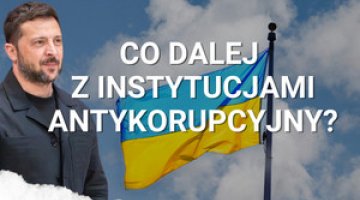Deepening divisions within the Ukrainian government coalition
After a very heated debate, on 29 December the Ukrainian parliament adopted the budget for 2015, as well as significant changes in the tax laws. The legislation was adopted without being considered by parliamentary committees, or even without the government showing MPs a draft text of the Act before the vote. The budget adopted is only temporary, and will be heavily revised by mid-February. This way of proceeding met with resistance from most of the parties making up the coalition, which was most strongly expressed by the Self-Reliance and Radical parties. President Petro Poroshenko came to parliament in order to personally discipline a section of his Bloc, and Volodymyr Groysman, the speaker of parliament who is associated with the President, stretched the parliamentary session late into the night to force the MPs to support the budget. Nevertheless, the project was supported by only 233 of the coalition’s 308 deputies.
Commentary
- The last few weeks of the new session of parliament, including in particular the work on the budget, show that the dividing lines within both the ruling coalition and inside the two biggest clubs, the Petro Poroshenko Bloc and the Popular Front, are being drawn ever more clearly. As expected, the inconsistency of the main ruling coalition parties – whose members come from a variety of groups, including social activists – is resulting in increasingly clear political and tactical differences between them. The main dividing line runs between those who want to continue the traditional, bureaucratic style of governance, and those who want to introduce solutions which are characteristic of mature democracies. Likewise, disputes between supporters of the President and Prime Minister’s policies and MPs representing the interests of the oligarchs (especially Ihor Kolomoyski) are becoming increasingly visible.
- Both President Poroshenko and Prime Minister Yatsenyuk want to bring the parliament to heel, so that it will vote through, unreservedly and with minimal discussion, the projects developed in their offices. This trend combines the two centres of executive power, which means that despite their own rivalry, they are able to come to a compromise; the presidential party has a very strong representation in the government, and so the rivalry has become ‘intra-governmental’ in nature. The goal of the president and prime minister – to minimise the role of parliament – is facing increasing resistance from the Self-Reliance party and some of the Poroshenko Bloc and Popular Front MPs whose roots lie in the circles of social activists and the media, who want parliament to be the subject, and not the object of politics.
- In the coming months, the parliament intends to draw up laws that will infringe a number of relevant interests (including judicial reform, including limiting judicial immunity, and the reform of local government bodies). Therefore, we may expect increasingly serious disputes and conflicts in the parliament, a renewal of the dispute between the president and the prime minister, and even the risk of the coalition dissolving and the government falling. The catastrophic economic situation will exacerbate the conflicts in parliament; however, a resumption of fighting in the Donbas on the larger scale will halt such conflicts
Cooperation: Wojciech Konończuk





